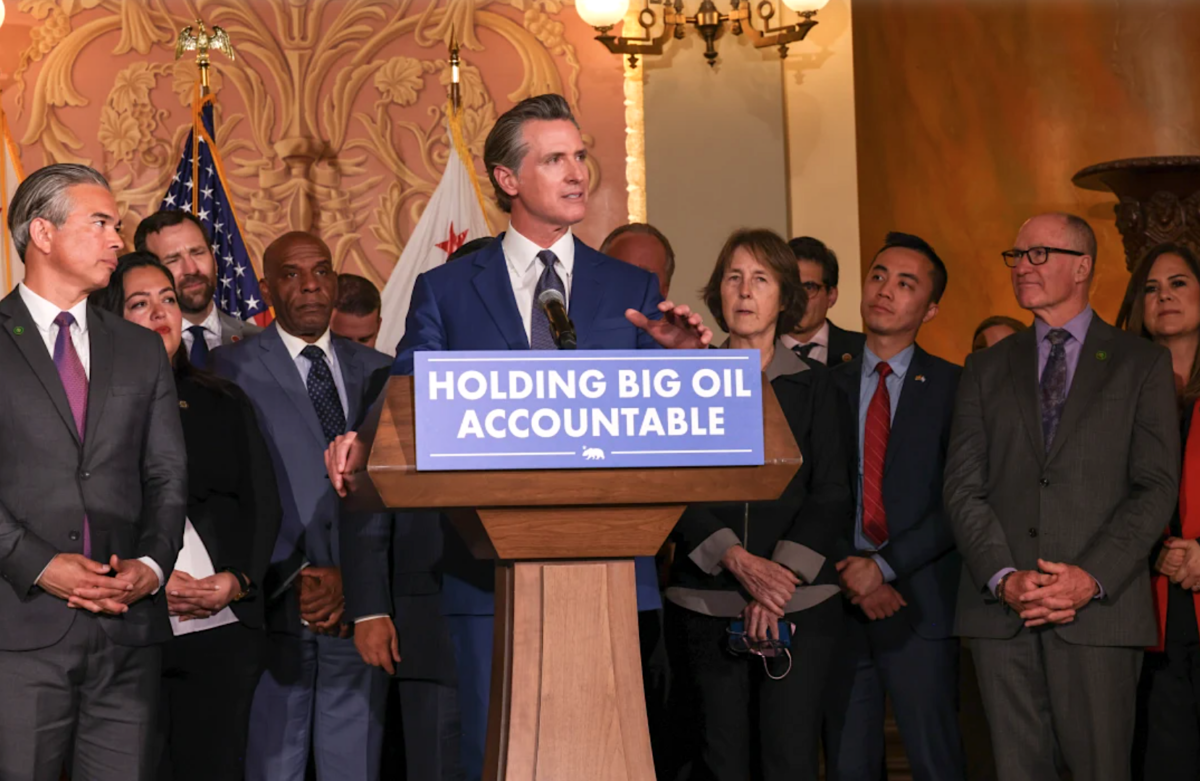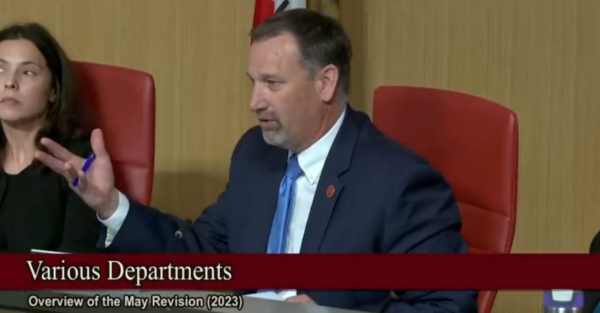


California Gov. Gavin Newsom’s recently passed law to “hold Big Oil accountable” faces more pushback in the state Legislature this week as lawmakers decide how to pay for its implementation.
The governor told Californians in a video posted in January they “won’t pay a cent” for his new law to punish oil companies for last year’s record-high gas prices. However, in his revised budget submitted on May 12, the governor proposes increasing the state’s electrical energy surcharge—a tax paid by the state’s electricity consumers based on the amount of consumption—by $6 million a year to fund the new program.
State Sen. Brian Dahle (R-Bieber) on May 17 questioned a representative from the state’s finance department on the proposed tax increase, which would fund more than a dozen new positions at California Energy Commission responsible for figuring out if oil refineries are charging too much.
“Why are we paying electricity rates to go after oil producers, or to fund the positions, when it should come out of the general fund?” Dahle asked during a Senate hearing. “At the end of the day, why are [electricity] ratepayers on the hook?
“Low-income, disadvantaged folks are paying those bills,” Dahle added.
The representative didn’t answer the question.

The law establishes a new oversight division inside the state’s Energy Commission to analyze trends in the petroleum supply chain and pricing.
In the revised budget, Newsom asks for $5.9 million from the electrical energy surcharge for 14 new positions at the commission to establish the oversight division, and $1 million for the state’s air resources board to create a plan to transition transportation fuels to zero-emission options. Another $286,000 from the Occupational Safety and Health Fund would pay for one new position to analyze and manage oil refinery turnaround and maintenance schedules.
When lawmakers rushed to pass Newsom’s Senate Bill 2 to punish oil companies in March, the bill’s language was vague on how the state would be paid for its implementation when it takes effect at the end of June.
The governor’s revised state budget also projects a major deficit of $31.5 billion for the fiscal year 2023–24, which begins July 1.

A spokesman for Newsom said the new law should not be blamed for the proposed increase since the energy commission has considered the proposal several times hoping to alleviate its ongoing deficit.
“The change to the California Energy Commission (CEC) funding proposal would have been the same whether or not the gasoline price gouging law was enacted as this is the third time this proposal has been presented given the CEC’s ongoing structural budget deficit,” spokesman Daniel Villaseñor told The Epoch Times in an email. “It is incorrect to say that ratepayers will pay more because of the gasoline price gouging law.”
Administered by the California Department of Tax and Fee Administration, the electricity surcharge was first imposed in 1975 and has been funding programs approved by the energy commission.
In 2023, California’s electricity customers pay $0.0003 per kilowatt-hour. For an average customer, that amounts to about $1 a month.
